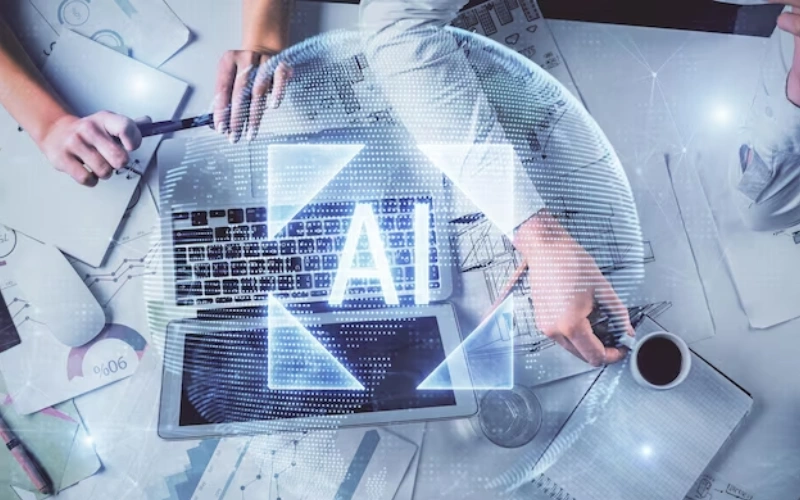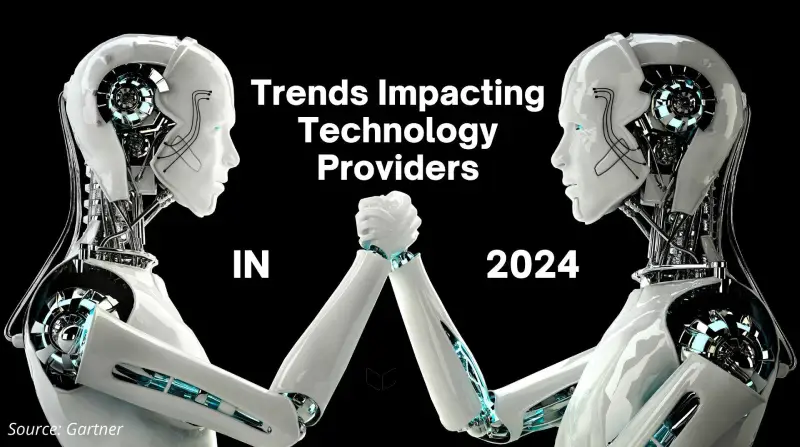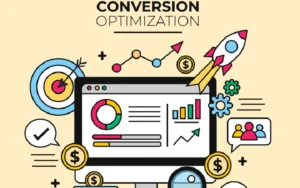Revolutionizing Business: The Impact Of Artificial Intelligence For Enterprises
Artificial Intelligence (AI) has emerged as a game-changing technology for businesses, revolutionizing the way enterprises operate and make decisions. AI, which broadly refers to the capability of machines to mimic human intelligence, has been making strides in various industries such as finance, healthcare, retail, and manufacturing. It is now poised to transform the operations of enterprises of all sizes and from all sectors, leading to increased efficiency, accuracy, and innovation. The potential of AI for businesses is immense, and its impact can be seen in every aspect of an enterprise, from customer service and marketing to supply chain management and risk assessment.
Artificial Intelligence: The Future Of Business Operations
As we move towards a more technologically advanced era, businesses are recognizing that AI is the future of their operations. AI has the potential to transform mundane and repetitive tasks, allowing employees to focus on more creative and strategic work. With the help of AI, businesses can automate routine processes, reduce human error, and improve efficiency and productivity. For instance, AI-powered chatbots can handle customer inquiries and complaints, freeing up human employees to handle more complex and critical tasks. This not only saves time but also leads to a better customer experience. Additionally, AI can analyze vast amounts of data quickly and accurately, providing businesses with valuable insights that can drive decision-making and improve overall performance. As the technology continues to advance and become more accessible, AI is expected to become an integral part of business operations in the near future.

Transforming Enterprises With Artificial Intelligence
One of the biggest impacts of AI on enterprises is its ability to transform the traditional ways of doing business. With the help of machine learning, businesses can automate and optimize various processes, leading to significant cost savings and improved efficiency. For example, the use of AI in supply chain management has enabled businesses to forecast demand, optimize inventory, and improve logistics. This not only reduces operational costs but also enables companies to better meet customer expectations and demands.
Moreover, AI has the potential to increase the speed and accuracy of decision-making. With the help of predictive analytics and real-time data analysis, businesses can make data-driven decisions that lead to better outcomes. This is especially crucial in today’s fast-paced and competitive business landscape, where companies need to react quickly and adapt to changing market conditions. By leveraging AI, enterprises can stay ahead of the curve and gain a competitive advantage.
The Game-Changing Effects Of AI On Corporate Strategies
The emergence of AI has not only affected business operations but has also forced companies to rethink their overall strategies. With the help of AI, enterprises can gather and analyze data from various sources, both internal and external, to gain a deeper understanding of their customers, markets, and competitors. This allows them to make more informed decisions and develop strategies that are more responsive to market needs. AI can also assist in identifying new opportunities for growth and expansion, as well as potential risks and threats. With the use of predictive analytics, businesses can anticipate market trends and stay ahead of their competitors in terms of product development and innovation.
Efficiency, Accuracy, And Innovations: How A Is Revolutionizing Business?
AI’s impact on business goes beyond just automating and optimizing processes. It has also led to a wave of innovations, with the development of new technologies and applications that were previously thought impossible. For instance, machine learning and natural language processing have enabled the creation of virtual assistants, which are becoming increasingly popular in businesses for tasks such as scheduling meetings, managing calendars, and sending reminders. AI has also led to the development of self-driving vehicles, drones, and robots, which have the potential to transform various industries, from transportation and logistics to healthcare and manufacturing.
Maximizing Profits Through Artificial Intelligence Integration
Another major impact of AI on enterprises is its potential to increase profits and revenue. By automating routine tasks, reducing human error, and improving decision-making, AI can help businesses cut costs and increase efficiency. This, in turn, leads to higher productivity and output, allowing businesses to maximize their profits. Furthermore, with the help of AI-powered data analysis, businesses can identify patterns and trends that can lead to revenue growth. For example, AI can analyze customer data to identify purchasing trends and patterns, which can then be used to develop targeted marketing campaigns and increase sales.
Navigating The AI Revolution: Challenges And Opportunities For Enterprises
While AI offers numerous benefits for enterprises, it also presents certain challenges that need to be addressed. One of the major concerns surrounding AI is the potential displacement of human workers. As AI continues to automate various tasks, there is a fear that it may lead to job losses in certain industries. However, AI also presents new opportunities for employees, such as the development and management of AI systems, which require a different set of skills. It is essential for enterprises to create a balance between AI and human employees to ensure a smooth transition and create new job opportunities.
From Data To Decisions: Harnessing Ai For Enterprise Success
The key to harnessing the power of AI for enterprise success lies in understanding its capabilities and limitations and implementing it strategically. By analyzing data and making data-driven decisions, businesses can achieve improved outcomes and competitive advantage. However, it is crucial to note that AI is not a one-size-fits-all solution and may not be suitable for every enterprise or every task. It is essential for businesses to carefully evaluate their needs and goals before integrating AI into their operations.
Conclusion
In conclusion, the impact of AI on enterprises is significant and far-reaching. It has revolutionized the way businesses operate, improving efficiency, accuracy, and innovation. As the technology continues to evolve and become more accessible, its impact on enterprises is only expected to grow. However, enterprises must also navigate the challenges and ethical implications of AI to fully reap its benefits. With proper implementation and strategic use, AI has the potential to drive enterprise success and shape the future of business operations.
Resource Link:
https://en.wikipedia.org/wiki/Artificial_intelligence
https://www.state.gov/artificial-intelligence/
https://www.novadatech.com.au/enterprise-ai-development

Marin Hùng, a passionate advocate for holistic well-being, is the driving force behind our health-focused platform. With a deep-rooted commitment to promoting a balanced and vibrant lifestyle, Marin brings a wealth of knowledge and experience to our health community. As a dedicated writer and wellness enthusiast, Marin’s insightful articles and expertise are at the heart of our mission to inspire healthier living.














Post Comment